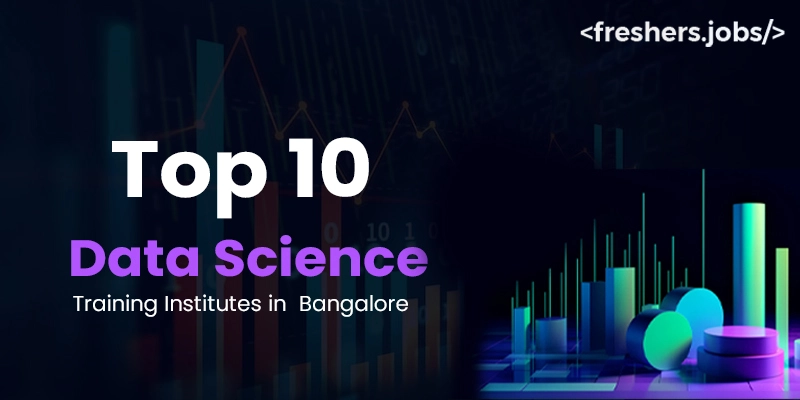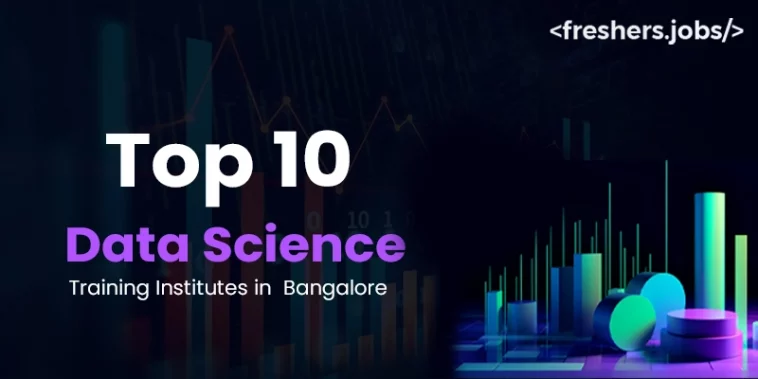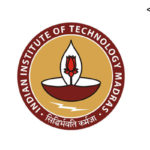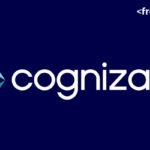Data science is a multidisciplinary field that involves extracting insights and knowledge from structured and unstructured data. It employs techniques from statistics, mathematics, and computer science to analyze and interpret complex data sets, providing valuable information for informed decision-making. In the end, data scientists help with problem-solving and business strategy by using a variety of tools and algorithms to find patterns, trends, and correlations in data. This helps them solve problems and develop business strategies. Data science gives organizations the ability to make educated decisions by gleaning important insights from complex and big databases. It is widely employed to analyze customer preferences, behavior, and feedback.

Data Science shapes decision-making, fosters innovation, and enhances overall business performance. It has become essential to contemporary business strategies, offering valuable insights, driving innovation, and improving operational efficiency. Its influence spans diverse industries, shaping how businesses function, compete, and respond to dynamic market demands. Additionally, data science enables predictive analytics, optimizing business operations by identifying inefficiencies, streamlining processes, and enhancing supply chain management. Moreover, it aids in the creation of robust fraud-detection algorithms. In this context, let’s explore the Top 10 Data Science Training Institute in Bangalore.
Below is a list of the Top 10 Data Science Training Institute in Bangalore.
- Fita Academy
- Simplilearn
- Intellipaat
- AnalytixLabs
- Besant Technologies
- Datamites Global Training Institute
- IIDE
- ExcelR
- Learnbay
- 360DigiTMG
FITA Academy
FITA Academy is a reputable training institution that offers an extensive array of more than 120 courses, both online and offline. Renowned for its proficiency in delivering crucial technical and professional certifications, the academy has established itself as a leading authority in the industry. With a dedicated team of more than 1,000 experienced trainers, each possessing a decade of expertise, the institution has positively impacted the educational journeys of more than 75,000 learners. The commitment to delivering high-quality training opportunities is evident through the institute’s presence in locations such as Bangalore, Chennai, Pondicherry, Coimbatore, and Madurai, ensuring accessibility for individuals from diverse regions.
Why choose the Data Science Training in Bangalore at FITA Academy?
FITA Academy offers an advanced course curriculum suitable for both beginners and experienced professionals, enabling students to develop a profound understanding of various data science concepts. Data extraction, collection, cleaning, exploration, integration, transformation, mining, and other related ideas are some of these concepts. The course also covers topics such as Data Models, Data Science algorithms, Statistical Models, Statistical Analysis, Regression Modeling, Hypothesis Testing, and their application using either Python or R. Recognized as a leading provider of top-notch Data Science Course in Bangalore, FITA Academy creates a comprehensive learning environment. Through hands-on methods and real-world projects provided by seasoned mentors, participants will improve their skills.
By completing this training, participants will have the professional and technical abilities needed to succeed in the field of data science. FITA Academy ensures accessibility to learning by offering the course at an affordable rate. Recognizing the significance of flexibility, the institution caters to learners’ preferences with adaptable batch schedules encompassing weekend and weekday classes. In addition, FITA Academy offers placement assistance to students once they finish the course, guaranteeing a thorough and well-rounded education.
Tailored Curriculum of Data Science Institute in Bangalore
FITA Academy has meticulously designed its curriculum to cover foundational concepts in Data Science, providing robust assistance to students in either Data Science with Python or R.
- Data Science with Python: Diverse topics are covered in this curriculum at the Data Science Institute in Bangalore, including Python functions, exception handling, lists, ranges, and tuples, Python dictionaries and sets, and regular expressions. Additionally, the curriculum delves into Data Manipulation using Python, provides a comprehensive understanding of Machine Learning Models, conducts a detailed exploration of Models, and encompasses Supervised and Unsupervised Learning Algorithms, along with a comprehensive understanding of Hypothesis Testing.
- Data Science with R: FITA Academy provides in-depth instruction in Data Science using R, covering a wide range of topics including R Programming Fundamentals, a thorough grasp of Data Types, Functions in R, interacting with External Data, R Data Visualization, and investigating Statistical Computations using R. The use of Packages in R is also emphasized in the curriculum. Ensuring a comprehensive and all-encompassing learning experience, the training program includes reinforcement sessions to assist students in solidifying their grasp of the topics presented.
Expert Mentors at Data Science Training in Bangalore
The professors at FITA Academy, seasoned experts with real-world experience in data science, are a unique selling point of the school’s Data Science Training in Bangalore. These dedicated trainers impart theoretical knowledge and provide valuable real-world insights, playing a pivotal role in keeping students abreast of the latest industry trends. This ensures that students are well-equipped to navigate the dynamic landscape of Data Science.
Project Presentation Sessions at Data Science Institute in Bangalore
A unique aspect of FITA Academy’s Data Science Course in Chennai is the integration of project presentation sessions. Recognizing the importance of practical experience in achieving proficiency in Data Science and preparing for a successful career, these sessions enable students to apply Data Science programming principles in real-life scenarios, providing valuable hands-on experience.
Free Placement Sessions Data Science Course in Bangalore
FITA Academy goes beyond traditional classroom instruction to fulfill its commitment to Data Science Course in Bangalore. The institution strongly emphasizes preparing students for the competitive job market by offering complimentary placement sessions. These sessions cover the creation of effective resumes, refining interview skills, providing job placement assistance, and offering career guidance. Empowered by these sessions, students can pursue their career ambitions. With an extensive network comprising 1,500+ partner companies, FITA Academy facilitates job placements for graduates, presenting a wide array of opportunities in the field of marketing. This comprehensive network ensures that students have access to promising career prospects, facilitating a smooth and successful transition into the professional realm.
Simplilearn
Simplilearn specializes in delivering Data Science training suitable for beginners and advanced learners. While their curriculum offers helpful resources for learning, the focus is primarily on online instruction, which could negatively affect in-person interactions between teachers and students. The course cost might be relatively higher compared to other institutes.
Intellipaat
Intellipaat offers comprehensive Data Science training with real-time assistance. Despite their training encompassing extensive facilities, the primary focus is on online courses, potentially affecting direct interaction between trainers and aspirants.
AnalytixLabs
AnalytixLabs is a well-known online platform providing a flexible Data Science Training Course covering fundamental to advanced-level concepts. However, their practical training may not be as comprehensive as some other institutes.
Besant Technologies
Besant Technologies specializes in providing industry-relevant knowledge and skill-improving Data Science Training. However, it may not be the better choice for those who aspire to seek a more in-depth learning experience.
Datamites Global Training Institute
Datamites Global Training Institute offers specialized Data Science Training tailored to industry-specific requirements. However, their placement support may not be as extensive compared to certain other institutes.
IIDE
IIDE offers a comprehensive Data Science course, offering vital skills. However, this course may not be the top choice for learners seeking a more extensive and in-depth learning experience when compared to other training institutes.
ExcelR
ExcelR specializes in offering customized Data Science Training for industry-specific requirements. However, their practical training component may not be as comprehensive as some other institutes.
Learnbay
Learnbay specializes in offering Data Science Training, covering extensive concepts. However, as compared to certain other training institutions, their degree of placement assistance could be comparatively less extensive.
360DigiTMG
360DigiTMG offers Data Science courses with a focus on imparting essential skills. However, it is important to note that their practical training component may not be as extensive as some other institutes.
Freshers Jobs carefully selected these institutes after thorough research, considering factors like brand reputation, learner feedback, and a proven track record of student achievements.
Role of Data Scientist in the Modern Business World
The role of a Data Scientist is pivotal and multifaceted. These experts are essential in helping firms make well-informed decisions by gleaning valuable insights from large and intricate datasets. Data Scientists are responsible for employing advanced statistical techniques, machine learning algorithms, and data analysis tools to identify patterns, trends, and correlations within data. One of the primary functions of a Data Scientist is to transform raw data into actionable insights. They examine data to uncover crucial information that can guide strategic business decisions by applying their domain knowledge and analytical skills. This process involves cleaning and processing data, identifying relevant variables, and creating models to predict future trends or outcomes. Data Scientists also contribute to innovation within businesses. Through their data exploration, they identify opportunities for process optimization, product development, and overall improvement in operational efficiency. Data Scientists help integrate cutting-edge solutions that improve a company’s competitive edge by keeping up with developing technologies and market trends.
Furthermore, Data Scientists are crucial in understanding customer behavior and preferences. They offer insights that help companies customize their goods and services to match the changing needs of the market by evaluating consumer data. This customer-centric approach enhances customer satisfaction and contributes to long-term business success. Data Scientists contribute by developing predictive models and conducting scenario analyses. In order to keep ahead of the competition, these models assist organizations in identifying possible dangers, projecting future market trends, and taking preemptive measures. Data scientists aim to foster an innovative and adaptable culture within organizations by empowering them to adopt a data-driven approach to decision-making. The role of a Data Scientist in the modern business world extends beyond data analysis; it is a strategic and indispensable function that drives informed decision-making, promotes innovation, and ultimately enhances the general prosperity and competitiveness of enterprises in today’s dynamic environment.
What is Data Science?
The complex field of data science uses scientific methods, procedures, algorithms, and approaches to extract valuable insights from both organized and unstructured data. Drawing expertise from diverse domains such as statistics, mathematics, computer science, and domain-specific knowledge, Data Science analyzes and interprets intricate datasets. The applications of Data Science span various industries, including finance, healthcare, marketing, and technology. Its overarching objective is to transform raw data into valuable insights, predictions, and recommendations that serve as the foundation for informed business decisions, improved organizational efficiency, and stimulated innovation. In the ever-evolving landscape of technology and data, Data Science maintains its dynamic and indispensable role in addressing complex problems and unlocking the potential of data for societal and business advancements.
Advantages of Data Science
- Well-Informed Decision-Making: By analyzing and interpreting large datasets, data science helps organizations to make data-driven, well-informed judgments that result in more precise and strategic decision-making processes.
- Predictive Analytics: By applying machine learning algorithms, data science gives organizations the capacity to forecast future patterns and results. This predictive power is useful for projecting demand, seeing possible hazards, and streamlining processes.
- Enhanced Operational Efficiency: Businesses can save costs and better allocate resources by applying data science to optimize workflows, streamline operations, and improve overall operational efficiency.
- Personalization and Customer Experience: Businesses leverage Data Science to analyze customer behavior and preferences, facilitating the implementation of personalized marketing strategies, product recommendations, and improved customer experiences.
- Innovation and Product Development: Data Science is key in fostering innovation by offering insights into market trends, customer needs, and emerging opportunities. This information is vital for the development of innovative products, ensuring competitiveness.
- Fraud Detection and Security: Particularly in industries such as finance and e-commerce, Data Science is instrumental in detecting fraudulent activities. By recognizing trends and abnormalities suggestive of fraudulent activity, machine learning algorithms can improve security protocols.
- Optimized Marketing Strategies: Data Science aids businesses in the analysis and targeting of specific market segments more effectively, resulting in optimized marketing strategies, improved customer acquisition, and increased return on investment (ROI).
- Efficient Resource Management: By analyzing data on resource usage, organizations can efficiently distribute resources, whether it be for inventory control, workforce scheduling, or energy consumption.
- Healthcare and Research Advancements: In the healthcare sector, Data Science contributes to advancements in diagnostics, treatment planning, and drug discovery. It facilitates personalized medicine and accelerates medical research.
- Talent Acquisition and Human Resources: Data Science assists in talent acquisition by identifying suitable candidates through examining social media profiles, resumes, and other materials. It also aids in workforce planning and improving employee retention.
- Competitive Advantage: Businesses that use data science to their advantage keep ahead of industry trends, comprehend client needs, and make quick, well-informed decisions.
- Continuous Improvement: By employing feedback loops and ongoing analysis, Data Science empowers organizations to iteratively enhance their processes, products, and services.
- Economic Growth and Societal Impact: Through innovations in healthcare, education, and other fields, data science propels innovation, boosts productivity, and opens up new economic opportunities that benefit society as a whole.
Key Elements of Data Science
- Data Collection: Acquiring pertinent data from various sources, encompassing databases, sensors, social media, and other platforms.
- Data Cleaning and Preprocessing: Ensuring the accuracy, completeness, and analysis readiness of collected data by addressing issues like missing values, outliers, and inconsistencies.
- Exploratory Data Analysis (EDA): Examining and visualizing data to identify patterns, trends, and relationships. EDA aids in comprehending the data structure before applying advanced analytical techniques.
- Feature Engineering: It is a technique used to improve machine learning model performance by choosing, modifying, or producing new features from pre-existing datasets.
- Machine Learning: The creation and application of algorithms and models for data classification, result prediction, and pattern recognition is known as machine learning. This encompasses supervised learning, unsupervised learning, and sometimes reinforcement learning.
- Statistical Analysis: Applying statistical methods to validate findings, test hypotheses, and quantify the uncertainty associated with data observations.
- Data Visualization: Generating visual representations of data to convey insights effectively. This includes charts, graphs, and dashboards.
- Big Data Technologies: Using technologies like Hadoop and Spark to handle and analyze large amounts of data in order to get around the constraints of conventional data processing techniques.
- Integration of Domain Knowledge: In a given industry or field, insights are made relevant and practical by combining data analysis with particular domain knowledge.
- Communication Skills: Effectively communicating findings to technical and non-technical stakeholders, facilitating informed decision-making.
Job Opportunities in the Data Science Realm
- Data Analyst: Professionals in this role focus on collecting, processing, and analyzing data to support informed decision-making, utilizing statistical techniques and data visualization tools for communication.
- Healthcare Data Analyst: Analyzing healthcare data has the potential to improve patient outcomes, streamline hospital processes, and foster advancements in medical practices. This is the role of healthcare data analysts.
- Statistical Analyst: These specialists apply statistical techniques to analyze data, conduct experiments, and interpret results, finding employment in various industries such as healthcare and research.
- Machine Learning Engineer: Machine learning engineers work towards developing systems that possess the ability to learn and decide independently, doing away with the necessity for explicit programming. Their responsibilities include designing and deploying machine learning models and algorithms.
- Data Engineer: Involved in designing, constructing, and maintaining data architecture. Data Engineers contribute to organizations’ ability to handle and analyze large volumes of data.
- Business Intelligence Analyst: Building dashboards and reports using Tableau or Power BI is a common practice for Business Intelligence (BI) Analysts, assisting decision-makers in comprehending raw data.
- Predictive Modeler: Predictive modelers create models that project future patterns based on historical data; these models are especially useful in the marketing and finance sectors.
- Cybersecurity Analyst (with Data Science): These analysts use Data Science skills to analyze large datasets, identifying and preventing cybersecurity threats through machine learning.
- Data Scientist: Applying statistical models, machine learning techniques, and programming abilities to address business challenges, data scientists evaluate and understand large, complicated datasets in order to derive meaningful insights.
- Data Architect: Data Architects design and create structures for storing and organizing data, which is crucial in developing data systems aligned with organizational goals.
- AI Engineer: Artificial intelligence engineers leverage AI technologies for a wide range of applications.
- Data Product Manager: These professionals focus on developing and managing data-centric products, collaborating with cross-functional teams to bring data-driven products to market.
- Research Scientist: The development of novel algorithms, models, and methodologies by research scientists in data science advances the discipline.
- Data Science Manager/Director: Managers or Directors in Data Science oversee strategy and implementation, guiding teams and ensuring successful project execution within organizations.
- Quantitative Analyst: Also known as “Quants,” these analysts examine financial data using statistical and mathematical methods, often employed in the finance industry for risk management and investment analysis.
The need for data scientists is always growing as more and more companies in all sectors realize how critical it is to extract useful insights from massive information. Data scientists, data analysts, machine learning engineers, and business intelligence analysts are in great demand, and there are many job prospects in this field. Companies are actively seeking skilled data science professionals to leverage data for strategic decision-making, improve efficiency, and gain a competitive edge. The need for data scientists is further fueled by the quick development of big data and artificial intelligence. As organizations continue to invest in data-driven initiatives, the job market for qualified data science professionals is expected to remain robust. In this blog, we delved into the Top 10 Data Science Training Institute in Bangalore, offering valuable insights & guidance for those looking to acquire or enhance their skills in this transformative field.




